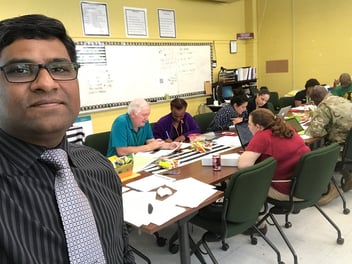Education Week: Bilingual Teachers Are in Short Supply. How 3 Districts Solved That Problem
English learners, a majority of whom are Spanish speaking, are the fastest growing student population in the country, and the need for educators who can effectively communicate with and support learners in their academic journey continues to rise.

“‘We have a need for more multilingual or bilingual teachers,’ said Conor Williams, a senior fellow at The Century Foundation think tank who researches multilingual educators and programs. ‘We have these candidates that have all of these valuable skills working as multilingual paraeducators—the only thing they’re missing is the credentials recognizing these skills.’”
Solution #1: Higher education institutions offer work placement programs
"In general, programs that help paraprofessionals gain their bachelor’s degrees and/or teacher certification need to address the following issues, Williams said: Teacher candidates need to pay as little out of pocket as possible to participate; class times need to be on a flexible schedule to allow for candidates to keep their paid day jobs; and programs need to value the existing linguistic and teaching skills paraprofessionals develop in their day jobs, especially if the goal is to grow a bilingual teacher pipeline.
 Elizabeth Alonzo works as a bilingual aide with 2nd grade student Esteycy Lopez Perez at West Elementary in Russellville, Ala., on Dec. 9, 2022. Alonzo obtained her bachelor's degree through a partnership with Reach
Elizabeth Alonzo works as a bilingual aide with 2nd grade student Esteycy Lopez Perez at West Elementary in Russellville, Ala., on Dec. 9, 2022. Alonzo obtained her bachelor's degree through a partnership with ReachUniversity and the Russellville city schools district.
Photo credit: Tamika Moore for Education Week


